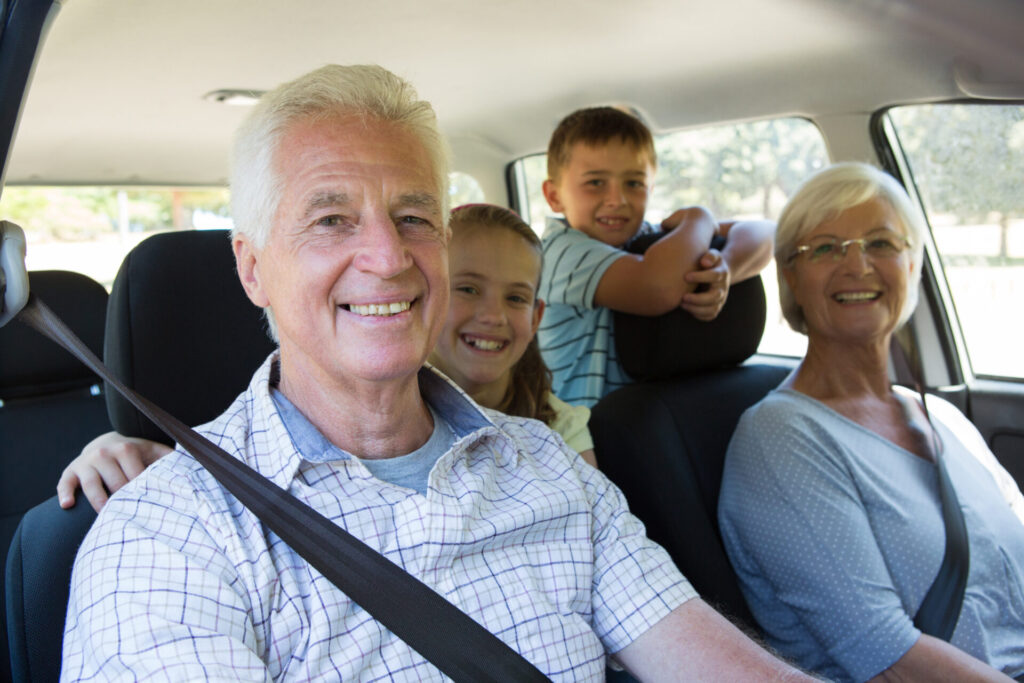
Mama Jane invites us onto her small farm in the Southern Rift Valley of Kenya. She grows beans and corn in fields fenced by cactuses, while goats, donkeys and chickens roam freely on her lawn. The Canadian charity Free the Children, which supports local economic development in the region, has set her up with a small colony of bees and her honey is now for sale in the nearby duka (shop) at Bogani Camp where we are staying.
She shows us her new chimney and outdoor dish-drying rack that has freed up space in her one-room home. There are no banks here but Mama Jane is a shrewd saver. She’s part of a co-op that regularly collects small payments from members and redistributes the money to those investing in projects to help the community. Mama Jane proudly shows us her most recent purchase – a calf that will become her first dairy cow. “In only four years,” she tells us through the Maasai warrior who is interpreting, “I will be able to share her milk with my community.”
Only four years. Time moves at a different pace in rural Kenya.
To thank Mama Jane for the tour and repay her hospitality, our group – made up of families from Halifax, Toronto and Calgary, plus a single man from New York City – did a water walk to the Mara River. With no electricity or plumbing in her one-room home, Mama Jane fetches all the water she uses to irrigate her crops, and for washing and drinking, from this river. This requires walking one kilometre there and back – the return trip with a jug of water hanging from her head. She does this five times a day.
My boys, ages 11 and 14, are part of this water walk and take turns hauling the heavy jugs which strap around their foreheads. The walk is strenuous but the path is suffused with yellow sunbeams and bordered by acacia and candelabra trees. Small children run out of mud huts as we pass, waving, smiling, and shouting “Jambo!” (hello).
My family came to Kenya on a volunteer vacation through Me to We, a social enterprise with half of net profits going to Free The Children and the other half reinvested back into Me to We. We receive not only a cultural immersion into life abroad, we also have opportunities to learn about international development first-hand and help build a school. We’re in Kenya to help lay the foundation for a vocational school, and have three shifts at the construction site where we mix and pour concrete. Under the supervision of a local crew and using only shovels, picks and wheelbarrows, it is physically demanding, yet rewarding. We sweat, laugh and at one point even sing “Proud Mary” together as we work. Meeting people like Mama Jane motivates us.
When not building or hauling water, we have time to explore this section of Kenya also known as Maasailand for the Maasai tribe who lives here. Our itinerary also includes beading necklaces with a Maasai mama, visiting a healthcare centre and local schools, playing pickup soccer with Kenyan kids, and learning about local plants and animals from two Maasai warriors during daily guided walks. On safari in the incredible Maasai Mara National Reserve we see vultures ripping into a dead zebra. We also see giraffes, lions, elephants, hippos, buffalos, antelopes, hyenas, cheetahs and hundreds of thousands of wildebeests on migration from Tanzania through Kenya.
The name Me to We reflects the goal of shifting our perspective from individual to collective – through how we act, how we give, the choices we make regarding what to buy and wear, and the experiences we seek.
Part of my goal, as a parent, was to expose my boys to their own power to create change. Watching them shovel gravel on the build site and haul water for Mama Jane hopefully helped them see that when you give some of your time and energy you often get more in return. Mama Jane thanked us profusely for visiting and fetching her enough water for two days, but truly it was us who left indebted to her.
Alison DeLory is a freelance writer based in Halifax, N.S.
Originally published in ParentsCanada magazine, November/December 2015.










